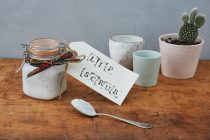This post was sponsored by Living Fresh. All opinions, editorial decisions and very important hours of practical research (aka, sleeping) are my own.
The time of year has arrived: it is cold, and I have now become a blanket burrito, never leaving my bed until the sun is once again out past 4.30pm and the temperature is above 0 sometimes.
Just kidding. I’m from Newcastle after all, and therefore take way too much pride in my ability to withstand the cold. Geordies are a particularly special breed, I can confirm. But if there was anyone that might change my mind on this, it has to be Living Fresh.



Living Fresh‘s parent company Valley Forge Fabrics has over 40 years of experience in the hospitality and textile industry, and for many years has been committed to developing sustainable products and innovative options for bedding, mainly in the hotel sphere. In 2009 Valley Forge partnered with Lenzing AG, a company that introduced the organic, sustainable eucalyptus fiber Tencel+Plus™ Lyocell to create the range of luxury bedding that you’ll find in most hotels, but can also buy directly for your home at a surprisingly affordable price. The company is based in Florida, and currently only sells in the US, but it’s only a matter of time before their dreamy sustainable fabrics begin world domination, one sustainable sleep at a time. (For the record, I said this about Who Gives A Crap a year ago and now they’ve expanded from Australia to sell in both the UK and the US! These things really do happen!)
Of all the fabrics that come from trees (bamboo, rayon, modal etc.) tencel is by far the most eco-friendly. It’s made from sustainably sourced eucalyptus verified by FSC and PEFC (Programmed for the Endorsement of Forest Certification). Eucalyptus is a rapidly renewable; properly trained foresters cut the trees 10-12 inches above the root bulb, so they grow back to full maturity within just 5 – 8 years. It can also grow in nearly any climate, requires less land than cotton, and doesn’t need pesticides, herbicides, irrigation or farming. The chemical process used to produce tencel uses 1 non-toxic chemical in a closed loop process, preventing any pollution from being discharged into waterways, unlike materials such as bamboo rayon which, while amazing for hard products, is not the best option for fabric. Additionally, only 10% of the eucalyptus is actually cut down while being replanted, so all bedding is made from naturally harvested, sustainable eucalyptus trees grown in forests, not farms. A+ for sustainable supply chains! You can actually read even more in depth information online here.


Aside from supply chains, tencel has a ton of other benefits. This bedding is anti-microbial and anti-bacterial, wears better and lasts longer than both bamboo or cotton, get softer with every wash without pilling and fibres are less prone to wrinkling. It doesn’t take a genius to understand why the hospitality industry has incorporated this bedding into their programs across the USA. I’ve always wondered how hotels get that luxury feeling. Now I know, because I can feel the difference at home.
I’ve had a really interesting relationship with my bed for the last few months. I’ve talked both about the importance of rest and slow living in the day to day, and my relationship with sleep has been a big part of that. I can definitely feel the benefits of waking up naturally, without a blaring alarm, so I’ve been dedicating some good time to training myself onto a sleep schedule of going to bed earlier and waking up earlier. Now that I’m a little further down the line in my attempts at slowing down I’ve been finding myself, for the first time ever, sleeping less hours but having better quality sleep. Some of this has been down to better general mental health, but I’ve also felt the difference when it comes to creating a space that feels calm and healthy to sleep in. The fact is, both non-organic conventional bedding and even ‘ethical’ bamboo bedding go through some pretty intense chemical processing, in contrast tencel is a much healthier, non-toxic material to lie on for 1/3 of our lives. Instead of breathing in potentially harmful chemicals, and also sometimes those weird smells that come along with them, Living Fresh helps create a healthier sleep environment.
I think these days I’m healthily halfway between the ‘I’m a human blanket burrito!’ and the ‘I’ll sleep when I’m dead!’ phase. I’m getting up early and working productively, though I’m still working on being strict with myself about my work day ending (no more checking your emails at 11pm Fran). But one thing I can say for sure is I’m definitely more well rested than I have been in a long long time. I’m sleeping soundly and I feel so much better for it, even on more stressful days. While Living Fresh might be high quality and comfy enough to tempt me to stay in bed all day, my sleep quality is so high that I’m actually ok with getting out of bed in the mornings. It just goes to show, slow living doesn’t have to look like literally moving slowly or staying in bed all day. Being well rested helps me take that feeling of balance into my busier moments. So thanks Living Fresh, for helping me carry that calm with me everywhere!



Until next time, stay magic y’all.






2 Comments